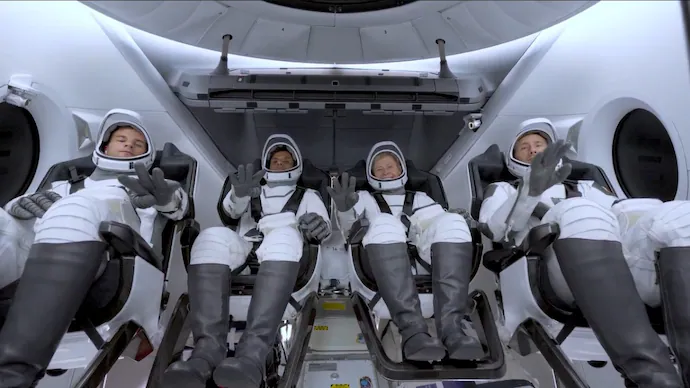
Introduction
In a historic leap for Indian space ambitions, Group Captain Shubhanshu Shukla has become India’s first astronaut in 41 years to launch into space. Aboard the commercial Axiom-4 (Ax-4) mission, he joins a multinational team en route to the International Space Station (ISS), making him the first Indian to visit NASA’s orbiting lab. The launch occurred at NASA’s Kennedy Space Center in Florida, sparking celebrations across India and signaling a significant milestone in India’s space journey.
India Returns to Space After Four Decades
Shukla follows in the footsteps of Rakesh Sharma, who became the first Indian in space aboard a Soviet mission in 1984. This time, however, the mission is part of a broader global collaboration involving NASA, ISRO, the European Space Agency, and private aerospace firm Axiom Space. ISRO paid ₹5 billion ($59 million) for Shukla’s seat and training, as part of its effort to gain hands-on human spaceflight experience ahead of its Gaganyaan mission in 2027.
Group Captain Shukla, a decorated India’s first astronaut Air Force pilot from Lucknow, brings over 2,000 hours of flying experience in jets like MiGs and Sukhois. At age 39, he’s also one of four test pilots shortlisted for India’s own crewed mission, making this trip a vital stepping stone.
“We’re Back in Space After 41 Years”
Moments after lift-off, Shukla delivered a message that thrilled his nation: “We’re back in space after 41 years. What an amazing ride it’s been… This is not the start of my journey to the ISS—this is the beginning of India’s human spaceflight.”
Back in India’s first astronaut, thousands watched the launch live, including his family and classmates in Lucknow. Prime Minister Narendra Modi hailed the moment as “a proud step toward India’s future in space exploration.”
Scientific Experiments and Collaborations
During his two-week mission on the ISS, Shukla will take part in over 60 experiments, seven of which come directly from India. These include:
- Studying the effect of microgravity on six varieties of crop seeds.
- Research on microalgae strains for food, fuel, and life support viability in space.
- Observing tardigrades, the hardy micro-animals, in space conditions.
- Investigating muscle loss and cognitive effects of screen use in low gravity.
These experiments, led by Indian scientists and coordinated with NASA, are expected to lay the groundwork for India’s future space station plans by 2035 and its aim to land an astronaut on the Moon by 2040.
Read more: India’s Gaganyaan Mission: Human Spaceflight Scheduled for 2027
India’s Growing Space Power
ISRO’s participation in Axiom-4 not only boosts its international profile but also enhances its technological preparedness. This mission offers India real-time exposure to human spaceflight operations, crucial for safely executing its own indigenous missions in the near future.
It also builds on the success of Chandrayaan-3, which made India the first country to land near the Moon’s south pole in 2023.
Conclusion: A New Chapter for Indian Spaceflight
With Group Captain Shubhanshu Shukla now orbiting the Earth at 7.5 km/s, India has reignited its human spaceflight journey with hope, pride, and ambition. As he pilots Axiom-4 and carries out cutting-edge research, he represents a new era where Indian science and innovation extend beyond Earth’s boundaries.
This historic mission serves as a powerful reminder of what the nation can achieve through collaboration, preparation, and vision. The countdown to India’s own crewed spaceflight in 2027 has officially begun.


